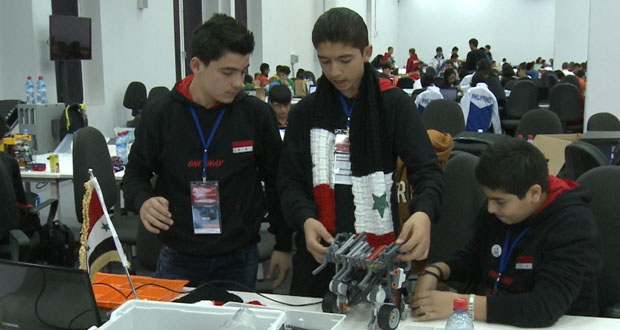What have the Syrians ever done for us?
Anton Howes, an economic historian who studies the causes of the Industrial Revolution, writes on refugee inventors:
Another was Johann Jacob Schweppe (1740-1821), whose company lives on of course as a manufacturer of tonic water. Schweppe’s major contribution was to apply Joseph Priestley’s experiments on carbonating water to develop a machine that could mass-produce it, and then to develop it into a marketable product. Schweppe was the son of a peasant from Hesse. Lacking the strength for agricultural labour, he was apprenticed to a travelling tinker, who recommended him to a silversmith. He eventually ended up settling in Geneva.Soon after taking his business to London in 1792, where he set up an aerated water factory on Drury Lane, the turmoil in France intervened. Fortunately, his daughter managed to join him before France declared war on Britain in 1793. Fearing the government’s reaction, Schweppe successfully appealed for the right to stay. He eventually returned to Geneva in 1802. France having annexed it in 1798, he returned to find himself a French citizen. (By the way, contrary to what it says on Wikipedia, his business did not fail - it was actually extremely successful and he simply sold his majority stake).
But Anton's list is of Europeans. What about Syrians? I was quite surprised to find out that Steve Jobs is half-Syrian, but the list goes on:
First up, there’s Ayman Abdel Nour, a one-time university friend of Assad’s at the University of Damascus, where he studied engineering. He became increasingly disillusioned with the regime, fleeing to the UAE in 2007, and then the US, where he is editor-in-chief of an online paper focusing on Syria. However, he has since developed and patented a sub-surface irrigation system, dubbed the Hydramiser. I don’t know much about irrigation, but it seems like a pretty helpful innovation for arid countries attempting to overcome their inherent agricultural disadvantages.
Read Anton's whole piece for more. I don't know of any inventors who are both Syrian and refugees, but perhaps one day that'll change.
And yes, I am aware that there are cultural differences between Syrians and Britons. Lots of people said this to me after my own piece that argued that accepting refugees might not be so bad in the long-run, economically speaking. Indeed Sweden, which in Europe takes by far the greatest number of immigrants from the Muslim world per capita, seems to have quite a serious crime problem.
But on the other hand London has done rather well out of immigration. The Asians who fled Uganda have been a success story in Britain, and the Arab migrants to the United States have integrated very well too. We should bear the potential problems with immigration in mind, but the fact that there are costs does not mean we should ignore the benefits too.

